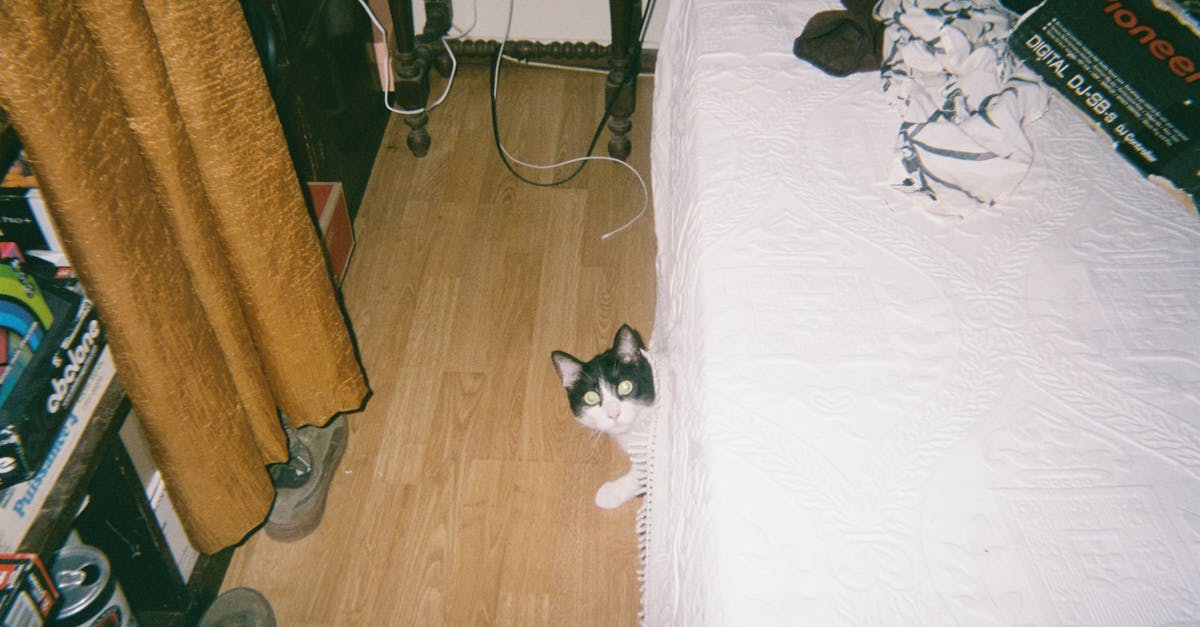It’s frustrating and confusing when your beloved cat suddenly starts peeing on your bed. You might feel upset, worried, or even a little betrayed. Rest assured, this behavior is often your cat’s way of signaling that something is wrong, whether it’s a health issue, stress, or environmental changes. Let’s explore why this happens and how you can help your feline friend return to their litter box.
🧠 Why This Happens
Cats don’t urinate outside their litter box out of spite. Instead, this behavior is usually their way of communicating discomfort or distress. There are several reasons your cat might be peeing on your bed, ranging from medical issues to behavioral or environmental factors.
- Medical Issues: Conditions like urinary tract infections (UTIs), bladder stones, or diabetes can make urination painful or frequent.
- Stress or Anxiety: Cats are sensitive creatures. Changes in their environment, such as moving, new pets, or even a new piece of furniture, can cause stress.
- Litter Box Problems: If the litter box is dirty, in an inconvenient location, or filled with a litter type your cat dislikes, they may avoid using it.
- Marking Behavior: If your cat hasn’t been spayed or neutered, they may be marking their territory by urinating in certain areas.
❗ How to Help
Understanding the root cause of your cat’s behavior is the first step to resolving the issue. Start by observing your cat’s habits, environment, and any recent changes in their routine. Here’s what you can do:
- Rule Out Medical Issues: Schedule a vet visit to check for conditions like UTIs, bladder infections, or other health concerns.
- Reduce Stress: Provide your cat with a safe, quiet space to relax. Use calming products like pheromone sprays or diffusers to create a soothing environment.
- Check the Litter Box: Ensure the box is clean, placed in a quiet area, and filled with a litter your cat prefers. You may need to experiment with different types of litter.
- Address Marking Behavior: If your cat isn’t spayed or neutered, consult your vet about this procedure, as it can reduce marking behaviors.
✅ Behavioural Solutions
Once you’ve identified the likely cause, you can implement targeted solutions to help your cat feel more comfortable and confident. Here are some practical tips:
- Clean Thoroughly: Use an enzymatic cleaner to remove urine odors from your bed. Cats are more likely to return to areas that smell like urine.
- Limit Access: Keep your bedroom door closed while you work on addressing the issue.
- Provide More Litter Boxes: The rule of thumb is one litter box per cat, plus one extra. Place them in different locations to give your cat options.
- Offer Positive Reinforcement: Reward your cat with treats or praise when they use the litter box correctly.
- Engage Your Cat: Spend quality time with your cat through play and affection to reduce anxiety and build trust.
💡 When to Get Support
If your cat continues to pee on your bed despite your best efforts, it may be time to consult a professional. Persistent inappropriate urination could indicate an underlying health issue or deeply rooted behavioral problem that needs expert intervention.
- Contact Your Vet: If medical issues haven’t been ruled out or if your cat has other symptoms like straining to urinate, blood in their urine, or excessive grooming, seek veterinary care immediately.
- Work with a Behaviorist: A certified feline behaviorist can help you identify triggers and develop a plan to modify your cat’s behavior.
- Use Telehealth Services: Online vet consultations, like those offered by Dial A Vet, can provide quick guidance and next steps from the comfort of your home.
FAQs
Q: Why is my cat peeing on my bed when their litter box is clean?
A: Even if the litter box is clean, factors like stress, medical issues, or changes in their environment can cause this behavior. Consider consulting your vet to rule out health problems.
Q: How can I stop my cat from peeing on my bed?
A: Start by addressing potential medical issues, reducing stress, and ensuring the litter box meets your cat’s preferences. Use an enzymatic cleaner to remove odors from your bed and limit access temporarily.
Book a $49 online vet consultation at https://www.dialavet.com for fast, expert advice.























